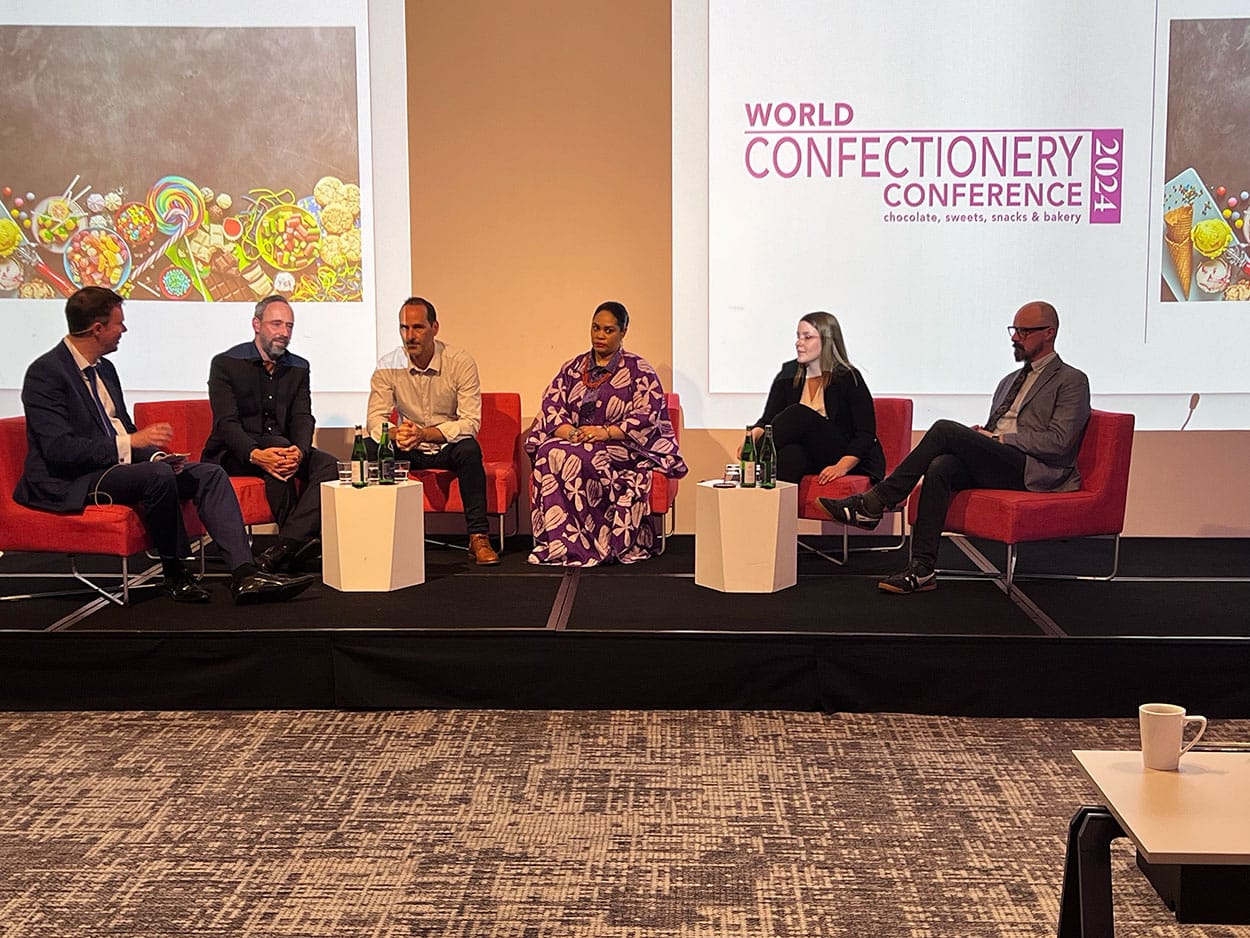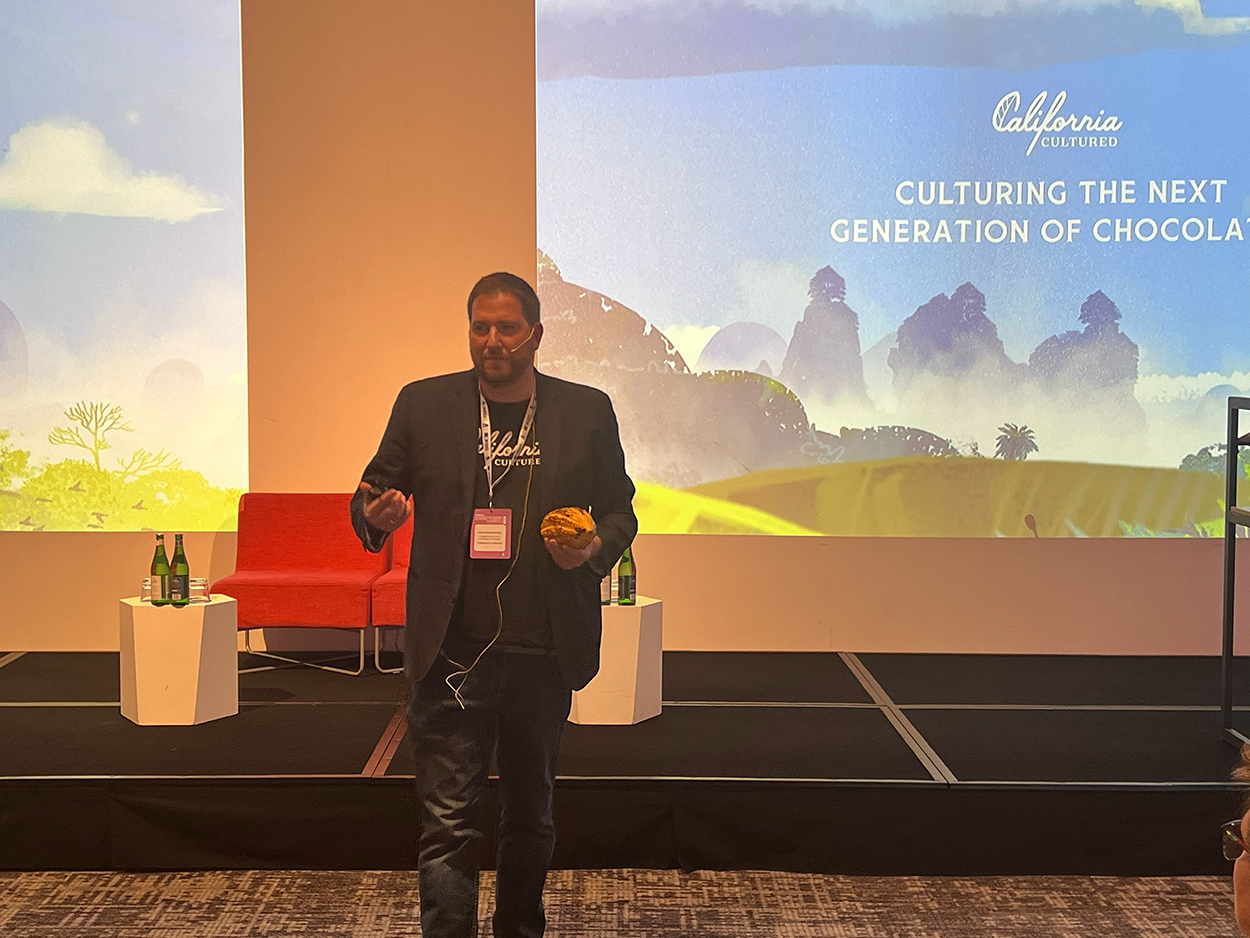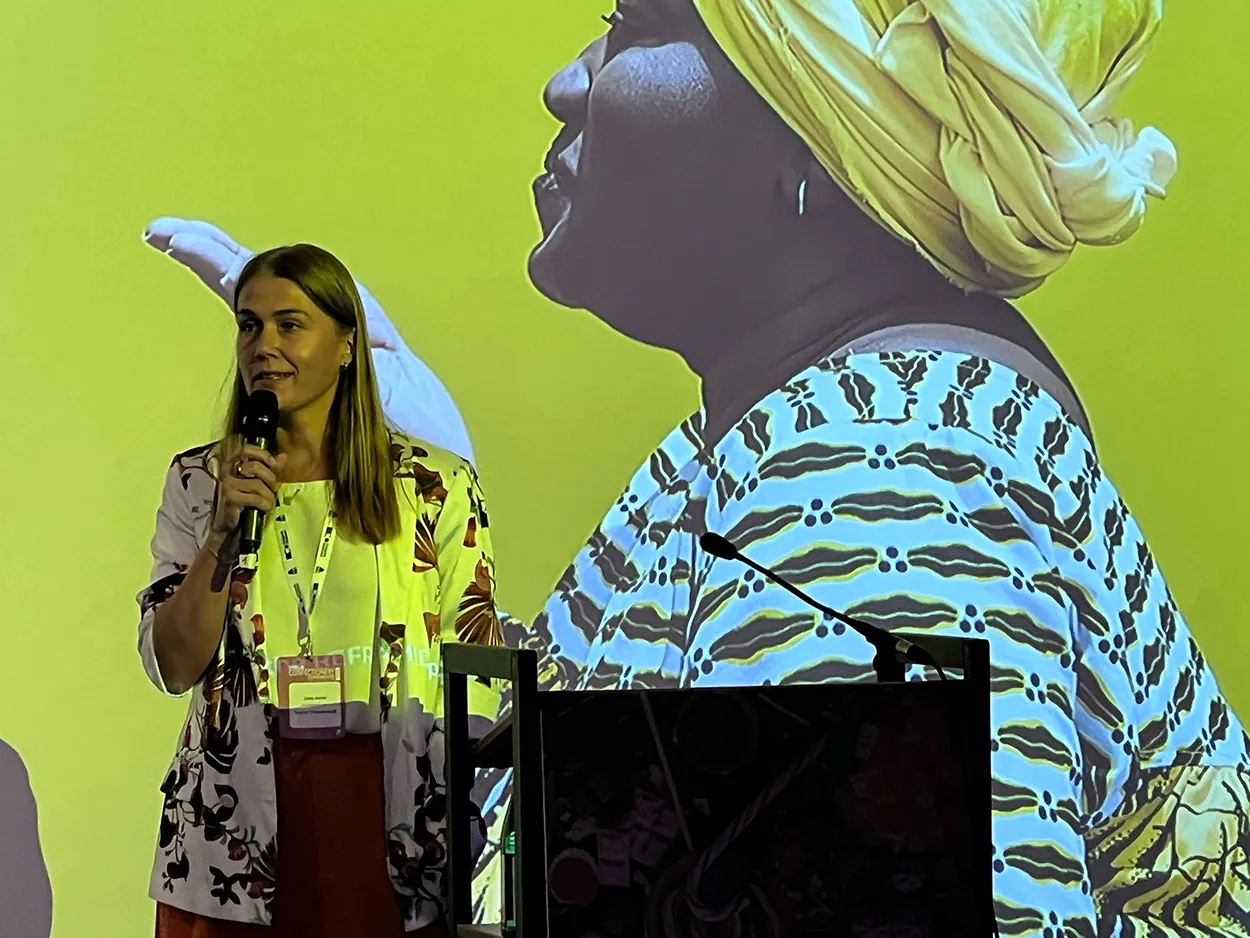Organised by the trade magazine Confectionery Production, celebrating its 90th year, the WCC is a relative newcomer to the cocoa and chocolate industry conference calendar. Its fourth incarnation suggests it is finding its voice in what can feel like an overcrowded market.
The event was refreshing in its intimate setting of the Nhow Hotel Conference Centre, held over one day on one stage. The presentations were focused, informative, and diverse, appealing to the magazine’s core subscribers and guests.

Editor Neill Barston kept the packed programme on track, hosting the final Q&A session on sustainability and discussing the EUDR, which speakers and guests broadly welcomed.
'Alt-choc' innovation
Conference guests were informed about the latest consumer trends and innovations in processing and packaging, and Alex Shandrovsky from California Cultured, one of the companies pioneering lab-created chocolate, gave an enlightening presentation.

Fresh from a visit to Ghana to see how cocoa is grown in the ‘old world,’ the discussion focused on the future of the chocolate industry, highlighting challenges such as climate change, sustainability, consumer habits, and the impact of large companies like Mars, Hershey's, and Nestlé.
Shandrovsky explored the potential of producing real chocolate using cocoa bean cells in reactors capable of yielding 5,400 tons annually. “With a real cocoa bean, we would take a slice of that cocoa bean, grow those cells, buy reactors, and harvest real chocolate. Simple, right? So the big question is, how does it taste? What's the chocolate like?”
The answer to that question will come in 2025 when the product is launched in the market.
“This is the vision, right there. Could this be possible? Could you have the size of a football field produce 5,400 tons per year of chocolate anywhere in the world … Italy, Belgium, Hershey's, Pennsylvania, Ghana?”
Concerns about the impact on cocoa farmers were raised, particularly regarding job displacement and the need for sustainable supply chains. Shandrovsky said the company’s vision includes designing sustainable facilities globally to meet the needs of major chocolate companies.
He reaffirmed that significant investors back California Cultured technology. The product complies with regulations and aims to maintain the integrity of real chocolate.
Sustainable cocoa
Cocoa sustainability was highlighted in talks by representatives from trade body Caobisco, along with Ferrero and Cargill, plus a keynote speech from Joke Aerts, Tony’s Chocolonely sustainability lead.
Her remit covers Tony's Open Chain, a shared cocoa-sourcing initiative by Tony's Chocolonely. This initiative aims to end cocoa exploitation by focusing on child labour, deforestation, and poverty.
The initiative, which includes 20 mission allies, has sourced 30,000 metric tons of cocoa for the upcoming season and is targeting 5% of West African cocoa in the future. She said Tony’s reduced child labour prevalence from 50% to under 4% in many cooperatives, such as ABCOFA in Ghana. “So you can make a change if you do it together. But it does need to be focused and over time.”
Tony's Open Chain pays a higher price for cocoa, invests in long-term cooperative partnerships, and emphasizes traceability and environmental sustainability.
Aerts also revealed that its latest impact report showed a 100% deforestation-free supply chain and €15 million in premiums paid to 20,000 farmers.
She also teased delegates by announcing that a new major US mission ally will join Tony’s Open Chain later this month.
A coup indeed for the WCC. You heard it here first.

